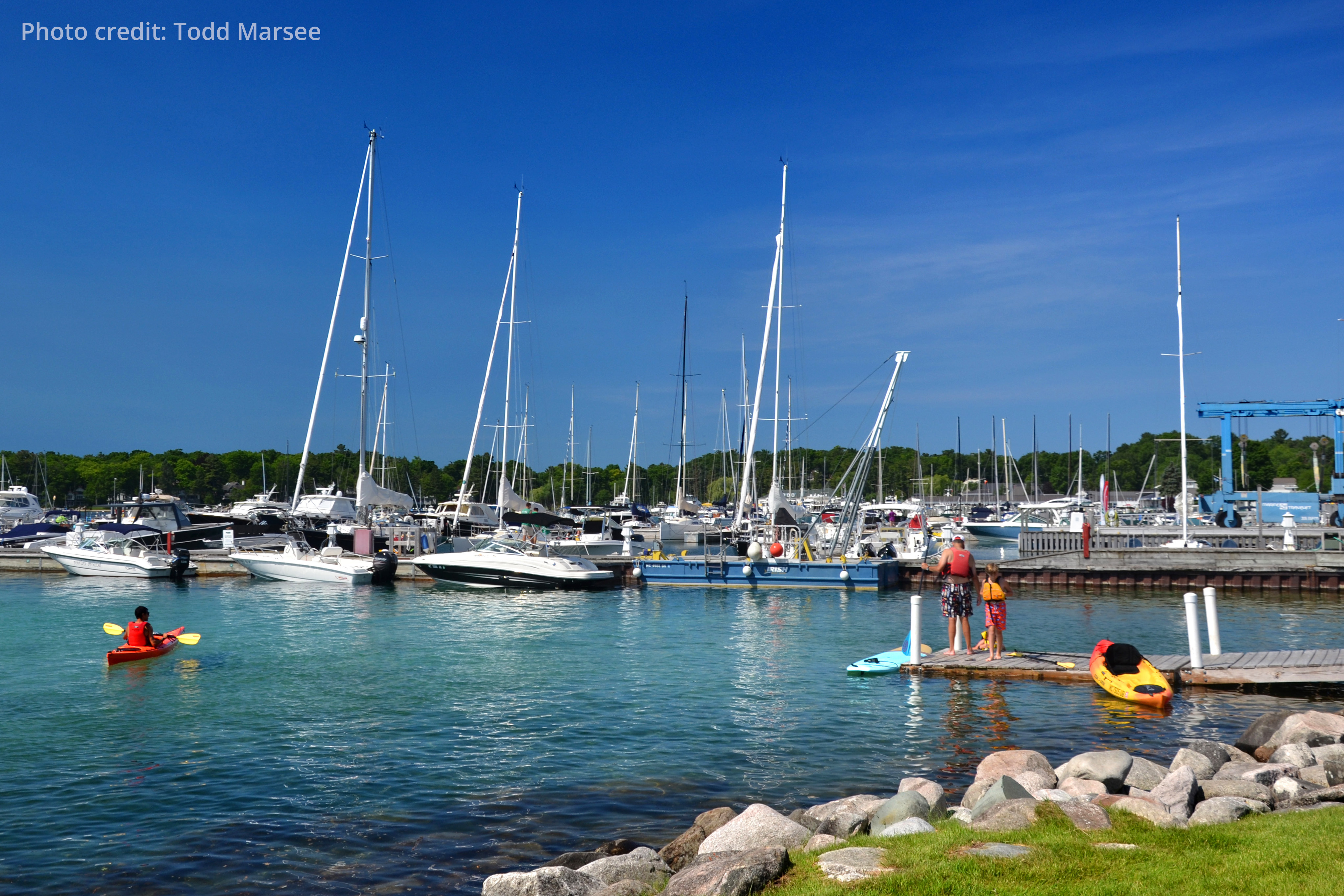States / Michigan
Michigan
Coastal Management
The focus is on managing coastal areas to increase resilience, with an emphasis on balancing environmental, economic, and human wellbeing. Mandated by the Coastal Zone Management Act, the two federal programs designed for this task are the National Coastal Zone Management Program and the National Estuarine Research Reserve System. Programs are administered, on the federal side, by NOAA’s Office for Coastal Management, in partnership with the coastal states.

State Programs
Coastal Zone Management
Michigan Coastal Management Program. This program was established in 1978 and is administered by the Department of Environmental Quality. Michigan's coastal area stretches at least 1,000 feet from the water's edge, with some areas extending further to cover significant coastal features. This program helps coastal communities by offering technical assistance and grant funding. Program goals include helping communities understand and address coastal risks, create enjoyable natural spaces, boost eco-tourism, ensure public safety, and support strong coastal economies.
Great Lakes Restoration Initiative. This initiative accelerates efforts to protect and restore the largest system of fresh surface water in the world—the Great Lakes. Built upon the foundation of the Great Lakes Regional Collaboration Strategy, this multi-agency initiative has provided funding to 16 federal organizations since 2010. The goal is to strategically target the biggest threats to the Great Lakes ecosystem and to accelerate progress toward achieving the organization’s long-term goals. See examples of NOAA products funded by the Great Lakes Restoration Initiative.
Impact Stories
Stories that showcase the recent work of this state's coastal management efforts.
- Planning Community Resilience in the Drowned River Mouth Systems of Coastal Lake Michigan
- Advancing Nature-based Coastal Resilience Across the Great Lakes Region
- Accelerating Natural Flood Management in the Lake Superior Basin
- Michigan Preserves White Lake’s Water Quality through Community Engagement
- Lake St. Clair in Michigan Sports Accessible Floating Dock, Launch, and Walkway
- Restoration Efforts for Great Lakes Shoreline
Additional Resources
*Fast Fact Sources:
People: American Community Survey Five-Year Estimates
Beaches and Estuaries: Shoreline Mileage of the United States
Employment and Economy:
Marine Economy for the Coastal U.S. States
Marine Economy for the U.S. Territories